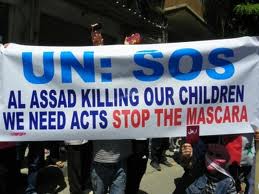 As we are treated to a continuous show on the Republican side, first with unending debates, and now with unending primaries and caucuses, it is easy to forget that we haven't seen anything yet. Of course, there is no contest to the President on the Democratic side. But the Republicans have not lost too many opportunities to run against him in their own campaign, when not being distracted by poll ups and downs, anti-Romneys up and down and the continuous intrusion of so-called "social issues." (I strongly prefer the term "cultural issues" since they are all about culture wars and not about class divisions.) Republicans are being driven by the so-called base, including Tea Partyers and evangelicals, to address these issues. Furthermore, they are a way to attack both President Obama and front-runner Romney at the same time.
As we are treated to a continuous show on the Republican side, first with unending debates, and now with unending primaries and caucuses, it is easy to forget that we haven't seen anything yet. Of course, there is no contest to the President on the Democratic side. But the Republicans have not lost too many opportunities to run against him in their own campaign, when not being distracted by poll ups and downs, anti-Romneys up and down and the continuous intrusion of so-called "social issues." (I strongly prefer the term "cultural issues" since they are all about culture wars and not about class divisions.) Republicans are being driven by the so-called base, including Tea Partyers and evangelicals, to address these issues. Furthermore, they are a way to attack both President Obama and front-runner Romney at the same time.Romney wants to run on economic issues because, as he frequently says, he knows how to create jobs. Interestingly, he has never really gone into any detail about how he would do this. We are left to rely on his reputation as a successful businessman who saved the Salt Lake City Olympics as proof of his abilities. He cannot even claim much credit for his stint as Massachusetts governor, because he governed as a moderate and, frankly, much of Republican strength is in the South, West and Mid West: North easterners don't hold much weight in the current party. After all, this is no longer the party of Nelson Rockefeller or Jacob Javits, and apparently not even Olympia Snowe. Despite all this, Governor Romney's nomination victory appears to be a near inevitability according to all the pundits.
Actually, I hope so, because the other candidates all scare the hell out of me. If a Republican were to win the Presidency, I would prefer that it be a well rounded centrist (even if he equivocated during the campaign) than a radical alternative. Speaker Gingrich is a brilliant intellectual, but has been extreme in his criticism of the President, "liberals" and 'big government." I would hope he is also just seeking to capture the Republican base, but there is no balance there. Senator Santorum I find to have a pleasing, youthful personality with a good dose of sincerity, but he has gone off the charts with his remarks about cultural issues and criticism of the President as making "war on religion" and a "snob" for wanting every American to have the opportunity to go to college. Ron Paul has a certain gentility to him but his libertarian extremism that would return us to the gold standard, eliminate the Federal Reserve and remove the country from its role as the greatest world power, seems dangerous. It is inspiring to see how a very mature man like him inspires many college students and independents, but I suppose that they follow him for his rhetoric as opposed to his pragmatism.
So let's assume that Governor Romney wins the primary battle or a convention battle in Tampa. (I do not consider whether any of the other candidates--or even Sarah Palin--would win, because I believe they would not be a challenge to the President. Once in the general election, the center becomes the "center of gravity" (to use a military term) of the elections. Radicals will not appeal to the center, period.
So why would President Obama be able to beat Governor Romney? Quite simply because the economy is going to continue to improve, including the job situation and will undercut the Republican's primary criticism of the President, that he has failed to successfully fix the economy following the Great Recession. Not only that, the fact that this recovery will be gradual still, will cause the voting public to be even more cautious about switching captains of the ship of state at this fragile time. The improvement in the jobs front, the saving of the automobile industry, the stabilization of the banking sector and a bullish stock market will give confidence that the country is on the right course. Other issues, such as foreign policy, the issues that I find most interesting, will not be issues of the campaign. Obama and Hillary have done a good job of managing our relations with the world. He and Leon Panetta, and Robert Gates before him, have done a good job of extracting us from Iraq and laying a path to our withdrawal from Afghanistan. At the same time, The President has shown himself to be an able Commander in Chief with the killing of Osama bin Laden and the reduction of the Al Queda threat.
This is not to say that President Obama is widely loved in the country, From an inspiring campaigner, he became a cautious and careful Chief Executive. He is still a great communicator, but somehow lacks the warmth and common touch of some of his great Democratic predecessors. But he is still very Presidential in his manner and he is still probably one of the smartest people to occupy the White House. The latter is an attribute that will be to his credit in the long run. It is unfortunate that so much of the culture war rhetoric is designed to question his faith, his moderation, his nationality and birth origins--and behind it all, there is a troubling sense that race remains a factor in it. Undoubtedly, politics and elections is not a kid gloves arena and ambitious politicians will always use the tools of their trade, including negative campaigning. I would hope, following the election, we can get back to trying to resolve the real issues confronting this country and the world.



.bmp)